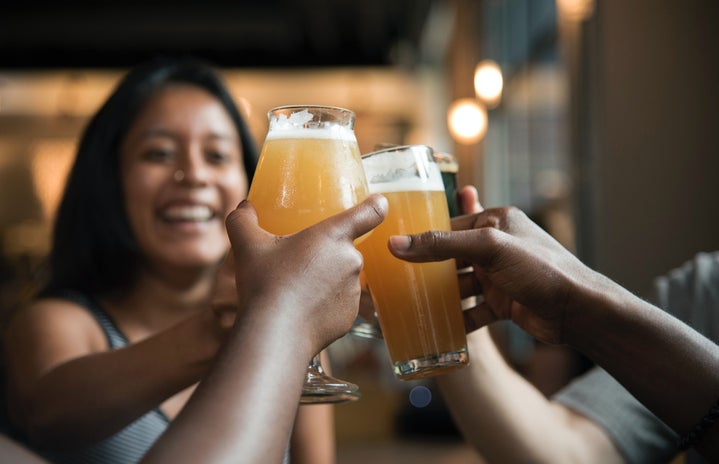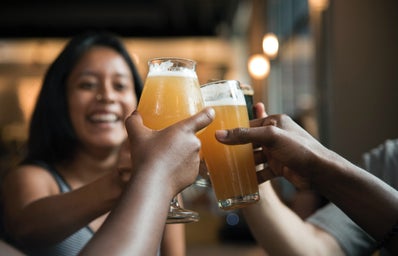On the surface, it may seem like the average University experience hasn’t really evolved. Skipping 9 am lectures to sleep in after club nights, shocking cooking, missing deadlines, all of this arguably essential in ‘Uni culture’, and generally, has been consistent until now. Yet why is our generation being labelled ‘generation sensible’? This is actually due to the modern decline in drinking culture among students, with a new wave of sobriety returning to Uni campuses. In this article I’ll attempt to debate the reasons why this may have occurred.
As a Uni student myself, drinking culture seems impossible to avoid, alongside the pressures that come with it. The first reason argued greatly by psychologists is that new university students simply don’t feel the same real or imagined pressures that they may have before. See, drinking culture greatly thrives from social influence, where people seek to ‘follow the crowd’ and exhibit behaviours they see their peers do. Through operant conditioning, their mind may be ‘rewarded’ for drinking, perhaps through gaining social acceptance from their peers, which establishes that this is a behaviour they should continue. However, with the decline in drinking, it may seem that drinking is no longer the norm, and therefore students won’t exhibit this behaviour in order to fit in anymore. This pattern is highly cyclical, leading to a constant decline in societal pressures to drink, increasing the number of sober students.
Yet why are people stopping drinking in the first place? Well, possibly this dramatic decline in alcohol consumption could be due to the younger generation’s awareness of the damaging effects of alcohol itself. Drinking too much alcohol can cause unstable mood swings, changes in libido, and appetite, and persistent irritability, leading to negative consequences which can impact students’ social life and personal mental health. Possibly young adults may perceive these negative impacts, as well as many other health-related consequences of alcohol within their older siblings, friends or even parents, offering as an example of what a life with frequent alcohol misuse may be like. Any of these individual reasons are enough on their own to put a young adult off from drinking, or at least help them reduce their intake.
This idea of exposure to the negative effects of alcohol can also be supported by the rise in social media. One possible suggestion may argue that as more young people today have phones, compared to previous generations in their youth, this could influence the way they socialise with others. More meetings can happen online, or through playing games. Bonds can be made through a simple text message instead of spending hours on end with each other, which for young adults, may have often included alcohol. Possibly this reduced level of in-person socialising also reduces students’ opportunities to drink.
However, more phones also means increased access to the internet, where images and videos can be shared quickly. I mean we’ve all seen funny photos and videos of people who have gotten too drunk on a night out, being plastered all over everyone’s private stories. Whilst it may be funny to look back on these videos, perhaps the reminder of your drunk actions in that form might make students more cautious with their intake, or even stop them drinking altogether. Arguably it is the new technology-focused society which may also may make students less likely to drink on a night out, from fear of embarrassing themselves or facing social judgement.
Alongside more research coming forward highlighting alcohol’s damaging effects on the body, there has been a vast reduction in both the amount of alcohol consumed overall, yet also the amount a student may drink in one night. This reflects the wave of new ‘sober curious’ students who are seeking new options other than alcohol to have on a night out. With many restaurants and bars coming out with new alcohol-free mocktail options it is becoming increasingly easier to have a sober night out and still have fun. The student appeal is blatantly obvious: Why drink alcohol when you can still have tasty drinks, without the hangover?
Possibly it’s the combination of more alcohol-free options, with the fear of getting drunk, or even worse, being sick from drinking, that causes students to evaluate drinking before a night out. Yet this can only be a positive. With alternative options arising, there is less pressure on students to have to drink, which can help create a more inclusive atmosphere for students as a whole. However, this isn’t to say that students shouldn’t drink anymore, it is in fact a benefit for them too, for students who choose to drink, this mass reduction in drinking culture may also relieve stress for them, and allow them to focus on their true intentions and wants with drinking, which can also positively benefit them. Perhaps it is overall a great positive that the decline in drinking has allowed ‘drinking culture’ to detach from ‘Uni culture’ helping create a new space and culture for everyone to enjoy.


